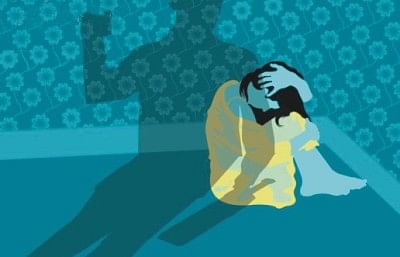Elimination of violence against women in Bangladesh

Photo: Neil Webb/Ikon Images
International Day to Protest Violence against Women is observed on November 25. In Bangladesh, violence against women and girls is becoming more and more common and widespread across the country. The so called "eve teasing" is getting wide attention because girls and their guardians are being attacked, and sometimes murdered, because they protested against it.
Violence against women covers physical violence, sexual harassment, acid attack, murder, rape, etc. Rape is one of the most brutal violence against women, which often leads to murder.
There are procedural gaps in the state interventions towards preventing such violence. Researchers point out that the incidence of violence against women is rising due to weaknesses in the legal framework, lack of gender sensitivity in the administration and poor law and order situation overall.
Newspapers have been playing a positive role in reporting news on violence against women. However, the electronic media is not playing such a positive role. The grim pictures in the daily newspapers only show further rise in the rate of reported cases of violence against women. However, many incidents still remain unreported and unrecognised.
The Constitution of the People's Republic of Bangladesh firmly proclaims: "All people are equal before law and are entitled to equal protection of law." Besides the constitutional guarantees, Bangladesh is a state party to the UN Convention on Elimination of all forms of Discrimination Against Women (CEDAW) and the UN convention on the Rights of the Child (CRC). Therefore, Bangladesh is under obligation to defend equal rights of women and children and to protect women and children from all forms of violence perpetrated by both state and non-state actors.
However, facts and documentation show that the obligation has not been fulfilled.
Girls have committed suicide, and parents have been assaulted and murdered over the past few months. The government has formed mobile courts to stop sexual harassment. The legal framework to combat violence against women has also incorporated the issue of stalking. The highest court has passed many decisions that are quite encouraging, e.g. ruling on safe custody, ruling against eviction of prostitutes, ruling against "fatwa," ruling on government for protecting women from acid attack, etc.
It can be said that, although the policy of the government seems to ensure equality, there are some issues of inequality from the gender perspective. Women in Bangladesh have always been in a disadvantaged position compared to men. Unicef's 2007 Humanitarian Action Report (February 4, 2007), released in Geneva, said that tackling gender inequality was critical to saving children's lives during time of crisis. In emergencies such as floods, women and children are disproportionately affected, and discrimination against women makes children even more vulnerable. An emergency can also offer enormous opportunity to advance gender equality.
A time has been fixed to achieve the MDG goals -- indicators of 2015 will be compared with 1990. The Declaration pledges explicitly "to combat all forms of violence against women and to implement the Convention of the Elimination of All Forms of Discrimination Against Women (CEDAW)." It recognises the importance of promoting gender equality and women's empowerment as an effective pathway to combat poverty, hunger and disease and to stimulate truly sustainable development.
Although Bangladesh has ratified the CEDAW declaration there are reservations in two of its articles (Article 2 and 16.1(c). As CEDAW is a complete legislation to ensure women's rights and gender equity, reservation in any section will jeopardise the major purpose of the convention.
Several NGOs, including dedicated women's activists, are playing crucial roles in implementing PFA, CEDAW, MDGs through acting as pressure groups. They have undertaken various programmes to strengthen the capacity building of women and of state interventions to combat violence against women. A number of NGOs are trying to address the issues of violence through providing legal aid and mobilising women to take action against dowry and wife battering, organising rallies, press conferences, workshops and seminars, lobbying for revision and reformulation of existing laws, monitoring state interventions, and arranging campaigns to protest violence against women.
However, time has come for all the people in the country to combat violence against women. There is no strong alternative to social protection. People have to be made aware that the complex issue of women's right is connected to human right in the complex socio-cultural, political and economic culture of Bangladesh.

 For all latest news, follow The Daily Star's Google News channel.
For all latest news, follow The Daily Star's Google News channel. 




Comments